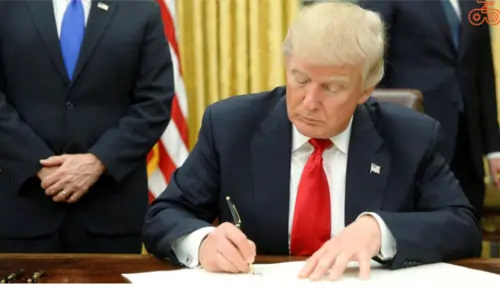
US President Donald Trump signed an executive order on Monday mandating federal employees return to full-time in-office work. This decision marks a significant shift in workplace policies implemented during the COVID-19 pandemic.
Executive Order Details
The new directive requires department and agency heads in the executive branch to end remote work arrangements as soon as possible.
- Key Requirement: Employees must return to their duty stations full-time unless exemptions are deemed necessary by department heads.
- White House Statement: The memorandum will be implemented in accordance with applicable laws.
This measure was one of several executive actions President Trump signed during a public event in Washington, attended by thousands of his supporters.
Challenges to Implementation
While the order seeks to return federal employees to traditional office settings, it faces resistance:
- Union Opposition: Public sector unions argue that remote work arrangements have proven effective and should not be discontinued.
- Employee Concerns: Many workers appreciated the flexibility and work-life balance remote work offered during the pandemic.
Supporters of the Move
President Trump’s supporters, including tech billionaire Elon Musk, have been vocal in their opposition to remote work. They argue that:
- Remote work reduces efficiency and accountability.
- A return to in-person work is essential for effective government operations.
Work-from-Home Policies Post-Pandemic
Remote work became widely adopted during the COVID-19 pandemic as a measure to curb virus transmission.
- Popularity Among Employees: Many federal workers adjusted to and preferred remote arrangements, citing increased productivity and better personal time management.
- Long-Term Impact: The pandemic shifted perceptions of traditional work settings, with many organizations adopting hybrid models.
Implications of the Executive Order
This policy change signals a return to pre-pandemic norms for federal employees. However, it raises questions about:
- Employee morale and productivity.
- The future of workplace flexibility in government sectors.
- The potential legal and logistical challenges of enforcing the order.
Disclaimer:
This article is based on publicly available information and official statements. It aims to provide a factual summary of the executive order without speculation.
Source: Abs-CBN








